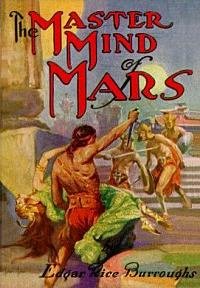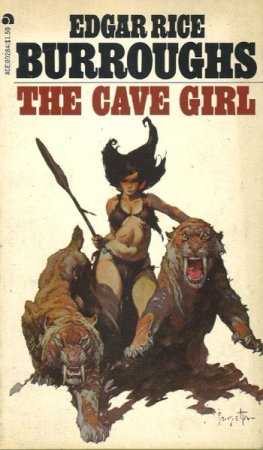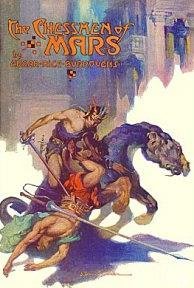Edgar Burroughs - Tarzan and the Leopard Men
Here you can read online Edgar Burroughs - Tarzan and the Leopard Men full text of the book (entire story) in english for free. Download pdf and epub, get meaning, cover and reviews about this ebook. genre: Adventure. Description of the work, (preface) as well as reviews are available. Best literature library LitArk.com created for fans of good reading and offers a wide selection of genres:
Romance novel
Science fiction
Adventure
Detective
Science
History
Home and family
Prose
Art
Politics
Computer
Non-fiction
Religion
Business
Children
Humor
Choose a favorite category and find really read worthwhile books. Enjoy immersion in the world of imagination, feel the emotions of the characters or learn something new for yourself, make an fascinating discovery.

- Book:Tarzan and the Leopard Men
- Author:
- Genre:
- Rating:5 / 5
- Favourites:Add to favourites
- Your mark:
- 100
- 1
- 2
- 3
- 4
- 5
Tarzan and the Leopard Men: summary, description and annotation
We offer to read an annotation, description, summary or preface (depends on what the author of the book "Tarzan and the Leopard Men" wrote himself). If you haven't found the necessary information about the book — write in the comments, we will try to find it.
Tarzan and the Leopard Men — read online for free the complete book (whole text) full work
Below is the text of the book, divided by pages. System saving the place of the last page read, allows you to conveniently read the book "Tarzan and the Leopard Men" online for free, without having to search again every time where you left off. Put a bookmark, and you can go to the page where you finished reading at any time.
Font size:
Interval:
Bookmark:
Tarzan and the Leopard Men
Edgar Rice Burroughs
Chapter 1. Storm
THE girl turned uneasily upon her cot. The fly, bellying in the rising wind, beat noisily against the roof of the tent. The guy ropes creaked as they tugged against their stakes. The unfastened flaps of the tent whipped angrily. Yet in the midst of this growing pandemonium, the sleeper did not fully awaken. The day had been a trying one. The long, monotonous march through the sweltering jungle had left her exhausted, as had each of the weary marches that had preceded it through the terrible, grueling days since she had left rail-head in that dim past that seemed now a dull eternity of suffering.
Perhaps she was less exhausted physically than before, as she was gradually becoming inured to the hardships; but the nervous strain of the past few days had taken its toll of energy since she had become aware of the growing insubordination of the native men who were her only companions on this rashly conceived and illy ordered safari.
Young, slight of build, accustomed to no sustained physical effort more gruelling than a round of golf, a few sets of tennis, or a morning canter on the back of a well-mannered mount, she had embarked upon this mad adventure without the slightest conception of the hardships and dangers that it would impose. Convinced almost from the first day that her endurance might not be equal to the heavy tax placed upon it, urged by her better judgment to turn back before it became too late, she had sturdily, and perhaps stubbornly, pushed on deeper and deeper into the grim jungle from which she had long since practically given up hope of extricating herself. Physically frail she might be for such an adventure, but no paladin of the Round Table could have boasted a sturdier will.
How compelling must be the exigency that urged her on! What necessity strove her from the paths of luxury and ease into the primeval forest and this unaccustomed life of danger, exposure, and fatigue? What ungovernable urge denied her the right of self-preservation now that she was convinced that her only chance of survival lay in turning back? Why had she come? Not to hunt; she had killed only under the pressure of necessity for food. Not to photograph the wild life of the African hinterland; she possessed no camera. Not in the interests of scientific research; if she had ever had any scientific interest it had been directed principally upon the field of cosmetics, but even that had languished and expired in the face of the fierce equatorial sun and before an audience consisting exclusively of low crowed, West Africans. The riddle, then, remains a riddle as unfathomable and inscrutable as the level gaze of her brave grey eyes.
The forest bent beneath the heavy hand of Usha, the wind. Dark clouds obscured the heavens. The voices of the jungle were silenced. Not even the greatest of the savage beasts risked calling the attention of the mighty forces of Nature to their presence. Only the sudden flares of the windswept beast-fires illumined the camp in fitful bursts that wrought grotesquely dancing shadow-shapes from the prosaic impedimenta of the safari, scattered upon the ground.
A lone and sleepy askari, bracing his back against the growing gale, stood careless guard. The camp slept, except for him and one other; a great hulking native, who crept stealthily toward the tent of the sleeping girl.
Then the fury of the storm broke upon the crouching forest. Lightning flashed. Thunder boomed, and rolled, and boomed again. Rain fell. At first in great drops and then in solid, wind-sped sheets it enveloped the camp.
Even the sleep of utter exhaustion could not withstand this final assault of Nature. The girl awoke. In the vivid and almost incessant flashes of lightning she saw a man entering the tent. Instantly she recognized him. The great, hulking figure of Golato the headman might not easily be mistaken for another. The girl raised herself upon an elbow.
"Is there something wrong, Golato?" she asked. "What do you want?"
"You, Kali Bwana," answered the man huskily.
So it had come at last! For two days she had been dreading it, her fears aroused by the changed attitude of the man toward her; a change that was reflected in the thinly veiled contempt of the other members of her party for her orders, in the growing familiarities of their speech and actions. She had seen it in the man's eyes.
From a holster at the side of her cot she drew a revolver. "Get out of here," she said, "or I'll kill you."
For answer the man leaped toward her. Then she fired.
Moving from west to east, the storm cut a swath through the forest. In its wake lay a trail of torn and twisted branches, here and there an uprooted tree. It sped on, leaving the camp of the girl far behind.
In the dark a man crouched in the shelter of a great tree, protected from the full fury of the wind by its hoary bole. In the hollow of one of his arms something cuddled close to his naked hide for warmth. Occasionally he spoke to it and caressed it with his free hand. His gentle solicitude for it suggested that it might be a child, but it was not. It was a small, terrified, wholly miserable little monkey. Born into a world peopled by large, savage creatures with a predilection for tender monkey meat he had early developed, perhaps inherited, an inferiority feeling that had reduced his activities to a series of screaming flights from dangers either real or imaginary.
His agility, however, often imparted a certain appearance of reckless bravado in the presence of corporeal enemies from whom experience had taught him he could easily escape; but in the face of Usha, the wind, Ara, the lightning, and Pand, the thunder, from whom none might escape, he was reduced to the nadir of trembling hopelessness. Not even the sanctuary of the mighty arms of his master from whose safe embrace he had often thrown insults into the face of Numa, the lion, could impart more than a fleeting sense of security.
He cowered and whimpered to each new gust of wind, each flash of lightning, each stunning burst of thunder. Suddenly the fury of the storm rose to the pinnacle of its Titanic might; there was the sound of rending wood from the ancient fibers of the jungle patriarch at whose foot the two had sought shelter. Catlike, from his squatting position, the man leaped to one side even as the great tree crashed to earth, carrying a half dozen, of its neighbors with it. As he jumped he tossed the monkey from him, free of the branches of the fallen monarch. He, himself, was less fortunate. A far spreading limb struck him heavily upon the head and, as he fell, pinned him to the ground.
Whimpering, the little monkey crouched in an agony of terror while the tornado, seemingly having wrought its worst, trailed off toward the east and new conquests. Presently, sensing the departure of the storm, he crept fearfully in search of his master, calling to him plaintively from time to time. It was dark. He could see nothing beyond a few feet from the end of his generous, sensitive nose. His master did not answer and that filled the little monkey with dire forebodings; but presently he found him beneath the fallen tree, silent and lifeless.
Nyamwegi had been the life of the party in the little thatched village of Kibbu , where he had gone from his own village of Tumbai to court a dusky belle. His vanity flattered by the apparent progress of his suit and by the very evident impression that his wit and personality had made upon the company of young people before whom he had capered and boasted, he had ignored the passage of time until the sudden fall of the equatorial night had warned him that he had long overstayed the time allowed him by considerations of personal safety.
Several miles of grim and forbidding forest separated the villages of Kibbu and Tumbai. They were miles fraught by night with many dangers, not the least of which to Nyamwegi were the most unreal, including, as they did, the ghosts of departed enemies and the countless demons that direct the destinies of human life, usually with malign intent.
Font size:
Interval:
Bookmark:
Similar books «Tarzan and the Leopard Men»
Look at similar books to Tarzan and the Leopard Men. We have selected literature similar in name and meaning in the hope of providing readers with more options to find new, interesting, not yet read works.
Discussion, reviews of the book Tarzan and the Leopard Men and just readers' own opinions. Leave your comments, write what you think about the work, its meaning or the main characters. Specify what exactly you liked and what you didn't like, and why you think so.






